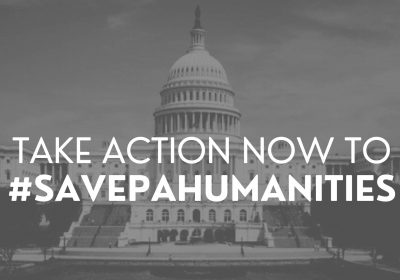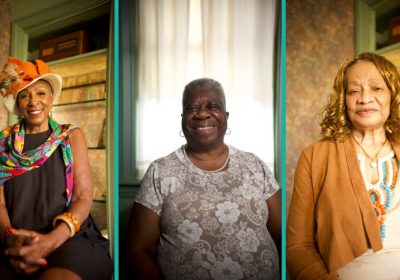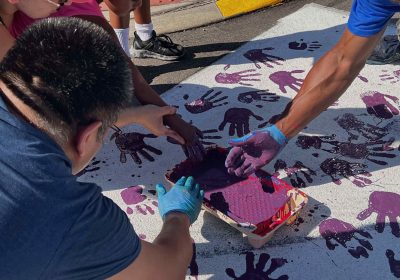By Karen Price
This summer, PA Humanities asked a question of young people across the state: What if you were in the room when the US Constitution was being written?
What would you change? What would you add? Who would you want with you?
Andrew Foster, of Upper Chichester, was just 16 years old when he submitted his video reply.
“Before our founding fathers even wrote the Constitution, before that was even a thought, they declared independence and wrote to Britain that we hold these truths to be self-evident, that all men are created equal,” Foster said. “I would ensure that the text not only meant white men who owned land. I would ensure that text meant men and women of all races, all backgrounds. That citizens in America should be equal, and are created to be equal.”
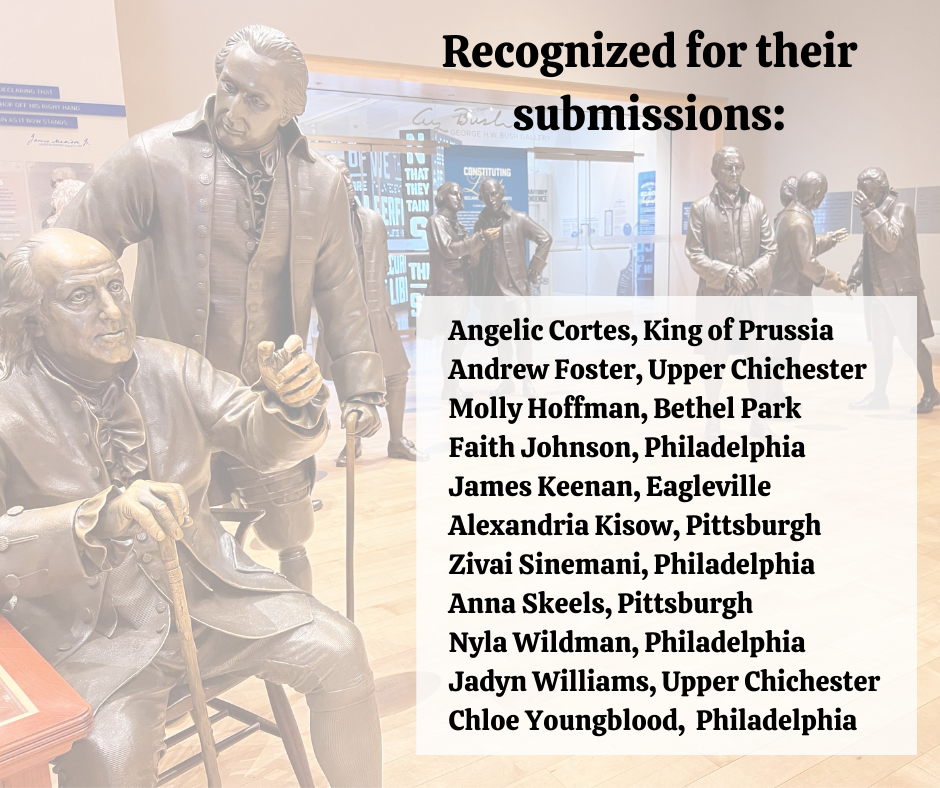
PA Humanities received dozens of videos from youth ages 16 to 22 from across Pennsylvania. A statewide panel, including a Constitutional scholar from Lehigh University and a member of Philadelphia’s PBS affiliate, WHYY, selected 11 submissions – including Foster’s – that demonstrated creativity, thoughtfulness and insight into how the historic document impacts their generation. On Sept. 24, PA Humanities hosted some of the participants for an unforgettable educational trip that included a private tour of the National Constitution Center in Philadelphia, a trip to New York City to see “Hamilton” on Broadway and a conversation with cast members after the show.
Molly Hoffman, 20, is a junior at Gettysburg College majoring in environmental studies and public policy. She wrote a poem, entitled “A Woman in the Sequel,” that was inspired by a lyric from “Hamilton” and included her desire for a green amendment and reproductive rights in the Constitution as well as the abolishment of the electoral college. It was her second time seeing “Hamilton,” but her first since deciding on a career path.
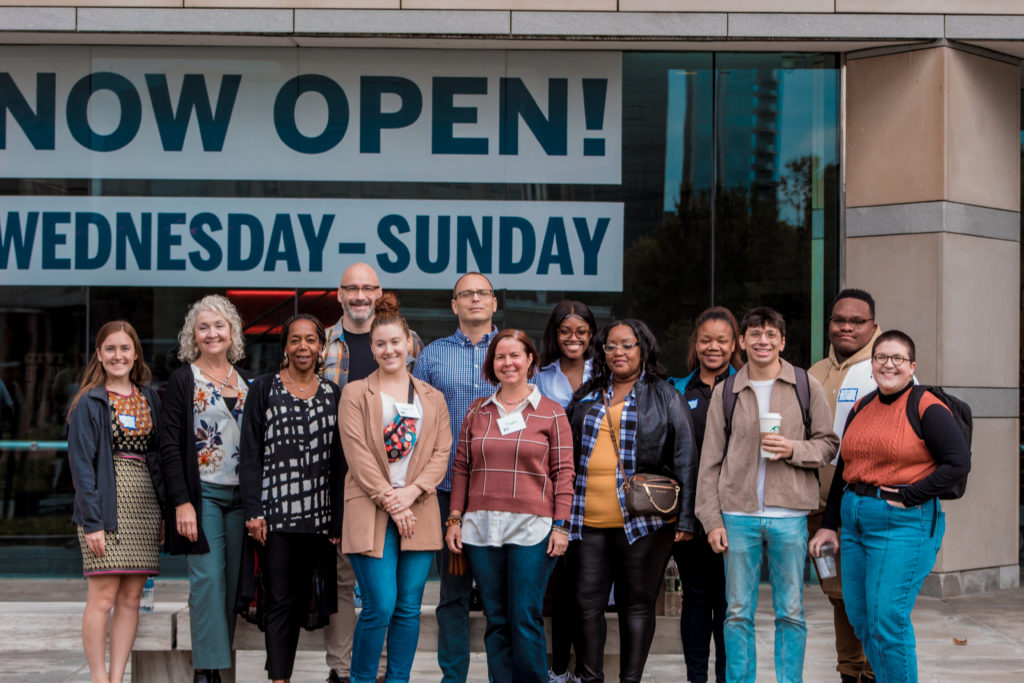
“When I first saw it I didn’t yet know that I wanted a career in public service, so now that I have seen it and have committed to a career in public service and the federal government, George Washington’s number ‘One Last Time’ was emotional because that’s his commitment to his service, his farewell to his country and his pride in his country, and everyone is thanking him for his service,” said Hoffman, a native of Bethel Park. “So that resonated with me.”
Nyla Wildman, a 17-year-old from Philadelphia, submitted a video centered around her wish to have reproductive rights written into the Constitution in order to give women “the respect and privacy they deserve.”
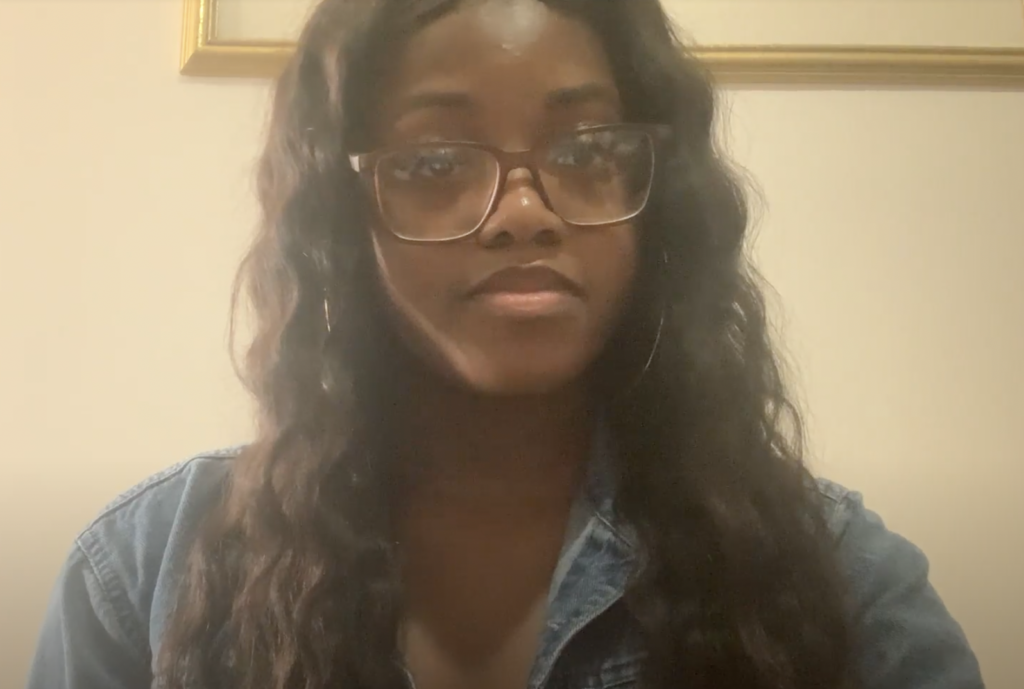
“The 14th Amendment states that you can’t deprive anyone of their right to liberty, so why has that changed?” she asked in the video. “As Alexander Hamilton would say (in the show), I am not throwing away my shot, and I’m definitely not throwing away my rights.”
Wildman said that she was a fan of the music of Hamilton, but seeing it live on stage gave her a different perspective on the story.
“I truly learned some of the history behind it,” she said. “Like what happened with George Washington, the whole situation with Hamilton’s wife and the affair, his son dying,” she said. “I really learned a lot because I listened but I never truly took in the history behind it until (seeing it on stage).”
After the show, seven cast members – including the actors who played Hamilton, Washington, Eliza Hamilton, Aaron Burr and Marquis de Lafayette/Thomas Jefferson – came back out to the stage and spent about 30 minutes taking questions in a private talkback. Members of the group asked about everything from how much they researched their roles to how they deal with rejection when they don’t get a part to how they make the roles their own.
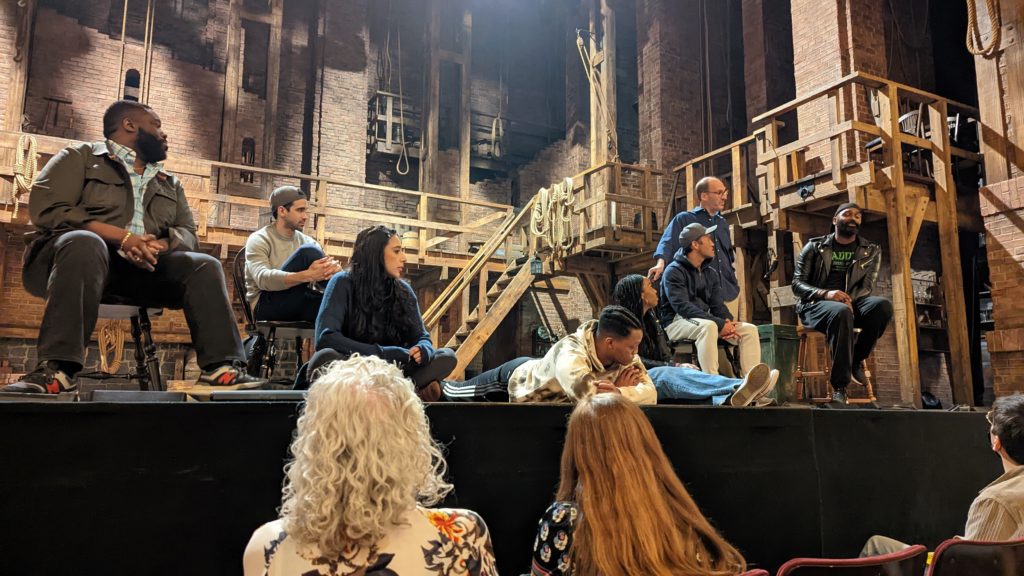
Anna Skeels, a 20-year-old theater arts major with a social justice minor at Point State Park University in Pittsburgh, asked about Ham4Justice, a collective of Hamilton cast members and staff dedicated to education, civic engagement, racial justice and gender equity. As someone who’s interested in pursuing racial justice through the medium of theater, Skeels said, the musical is particularly powerful.
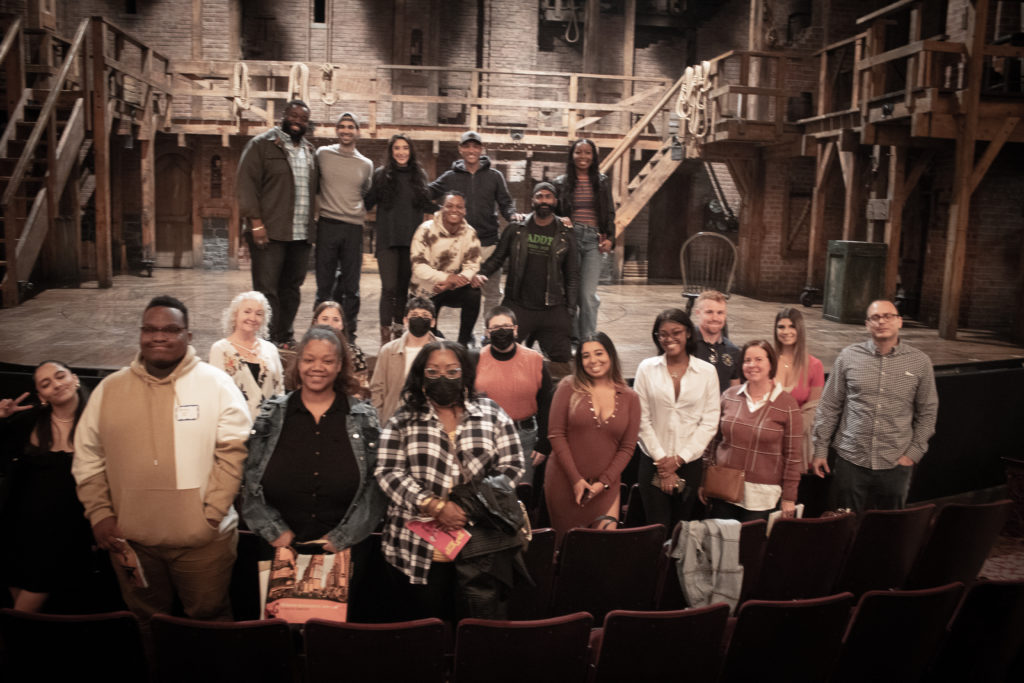
“I think the whole thing’s relevant,” they said. “There’s so much to take from it. And I think it’s so very important to know our history, too, and be able to understand it and understand its impact on today. So many of the conversations and arguments they have in the show are conversations and arguments we have now, so to hear them again and hear that they happened centuries ago is kind of like, ‘Oh crap, we haven’t fixed that.’ So it reinforces that idea that we’re still working on what they were working on.”
After seeing the show, Foster said it gave him new insight into how politics can break up not only friends but also families, and how much pressure that puts on an individual. The diversity of the cast, he said, also allowed him to see a different perspective on the nation’s history.
“I know a lot of people typically don’t like how a lot of the founding fathers acted because it was a different time, but they’re still human,” he said. “I feel like a lot of the pressure that was put on them to create the nation that we now all have to live in, it was a lot and they did well with what they were given. So I think seeing the show with the diverse amount of characters really flipped my perspective on the humanity of building an entirely new country after the Revolution.”
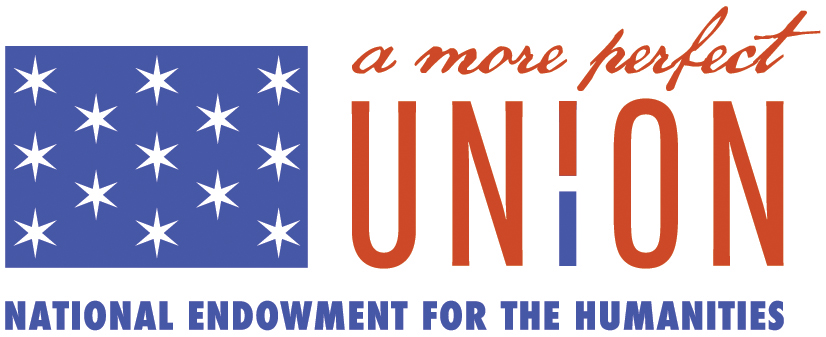
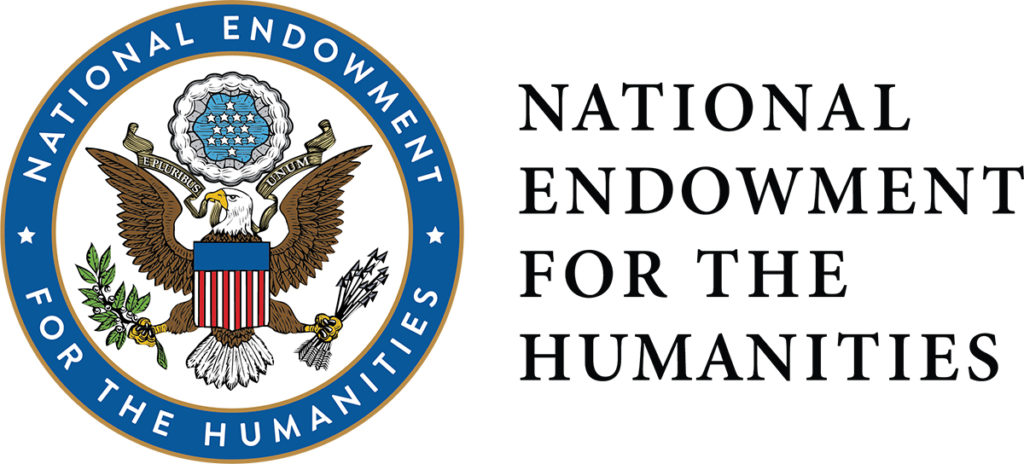
If You Were In The Room was made possible in part by a major grant from the National Endowment for the Humanities as part of the A More Perfect Union initiative.
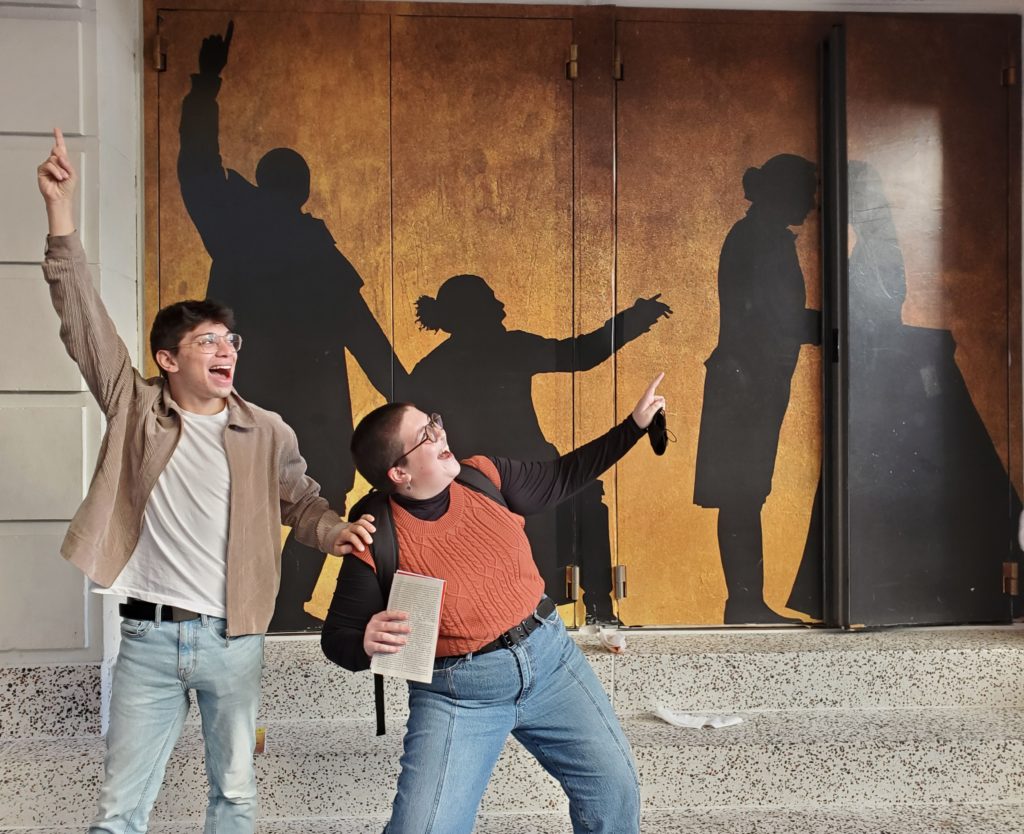
![[color – dark bg] PA SHARP FINAL FILES DB 72dpi [color - dark bg] PA SHARP FINAL FILES DB 72dpi](https://pahumanities.org/uploads/files/elementor/thumbs/color-dark-bg-PA-SHARP-FINAL-FILES-DB-72dpi-phgl7aimtfdpzt2rscvl43ksfv3asbbls19lsvuacw.jpg)
